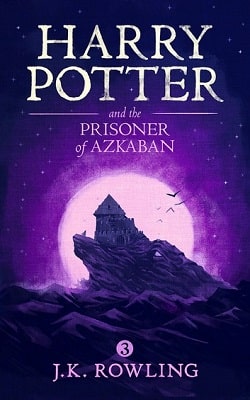Eadbald repeated his cries.
The alehouse door opened and a woman came out. Peering across the river, Edgar made her out to be little more than a girl, probably four or five years younger than he. She looked across the water at the newcomers but made no acknowledgment. She was carrying a wooden bucket, and she walked unhurriedly to the water’s edge,emptied the bucket into the river, rinsed it out, then went back into the tavern.
Erman said: “We’ll have to swim across.”
“I can’t swim,” said Ma.
Edgar said: “That girl is making a point. She wants us to know that she’s a superior person, not a servant. She’ll bring the boat over when she’s good and ready, and she’ll expect us to be grateful.”
Edgar was right. The girl emerged from the tavern again. This time she walked at the same leisurely pace to where the boat was moored. She untied the rope, picked up a single paddle, got into the boat, and pushed off. Using the paddle on alternate sides, she rowed out into the river. Her movements were practiced and apparently effortless.
Edgar studied the boat with consternation. It was a hollowed-out tree trunk, highly unstable, though the girl was evidently used to it.
He studied her as she came closer. She was ordinary looking, with midbrown hair and spotty skin, but he could not help noticing that she had a plump figure, and he revised his estimate of her age to fifteen.
She rowed to the south bank and expertly halted the canoe a few yards from the shore. “What do you want?” she said.
Ma answered with a question. “What place is this?”
“People call it Dreng’s Ferry.”
So, Edgar thought, this is our new home.
Ma said to the girl: “Are you Dreng?”
“That’s my father. I’m Cwenburg.” She looked with interest at the three boys. “Who are you?”
“We’re the new tenants of the farm,” Ma told her. “The bishop of Shiring sent us here.”
Cwenburg refused to be impressed. “Is that so?”
“Will you take us across?”
“It’s a farthing each and no haggling.”
The only coin issued by the king was a silver penny. Edgar knew, because he was interested in such things, that a penny weighed one-twentieth of an ounce. There were twelve ounces in a pound, so a pound was two hundred and forty pennies. The metal was not pure: thirty-seven parts in forty were silver, the rest copper. A penny would buy half a dozen chickens or a quarter of a sheep. For cheaper items, a penny had to be cut into two halfpennies or four farthings. The exact division caused constant quarrels.
Ma said: “Here’s a penny.”
Cwenburg ignored the proffered coin. “There’s five of you, with the dog.”
“The dog can swim across.”
“Some dogs can’t swim.”
Ma became exasperated. “In that case she can either stand on the bank and starve or jump in the river and drown. I’m not paying for a dog to ride in a ferry.”
Cwenburg shrugged, brought the boat to the water’s edge, and took the coin.
Edgar boarded first, kneeling down and holding both sides to stabilize the boat. He noticed that the old tree trunk had tiny cracks, and there was a puddle in the bottom.
Cwenburg said to him: “Where did you get that ax? It looks expensive.”
“I took it from a Viking.”
“Did you? What did he say about that?”
“He couldn’t say much, because I split his head in half with it.” Edgar took some satisfaction in saying that.















